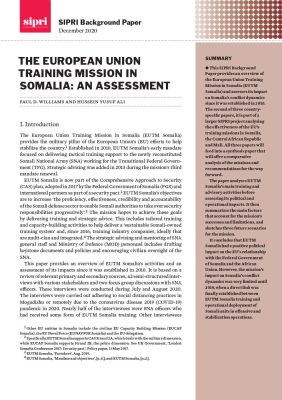The paper analyses EUTM Somalia’s main training and advisory activities before assessing its political and operational impacts. It then summarizes the main factors that account for the mission’s successes and limitations, and sketches three future scenarios for the mission.
It concludes that EUTM Somalia had a positive political impact on the EU’s relationship with the Federal Government of Somalia and the African Union. However, the mission’s impact on Somalia’s conflict dynamics was very limited until 2019, when a direct link was finally established between EUTM Somalia training and operational deployment of Somali units in offensive and stabilization operations.
Contents
- Introduction
- Background
- EUTM Somalia’s activities
- The impact of EUTM Somalia
- Explanatory factors behind the impact of EUTM Somalia
- The future of EUTM Somalia
- Conclusions
About the authors/editor
Paul D. Williams (United Kingdom/United States) is a professor in the Elliott School of International Affairs at the George Washington University.
Hussein Yusuf Ali (Finland/Somalia) is an independent researcher based in Somalia.
This SIPRI project report is part of a larger SIPRI project analysing the effectiveness of the EU’s training missions in Somalia, the Central African Republic and Mali, and forms the first of three country-specific papers. All three papers will feed into a synthesis paper that will offer a comparative analysis of the missions and recommendations for the way forward.
You can view the original report page here.
